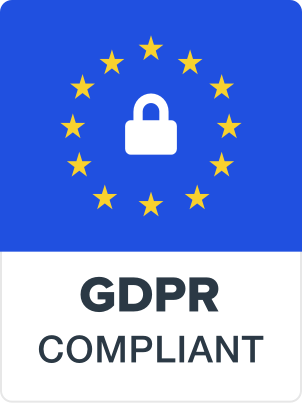Guide To Handle Event Management Checklists With Digital Audit

October 14 , 2023
Event Management is a wide area that requires great precision planning, coordinating and implementation of every aspect. When planning any event – ranging from a wedding to a corporate conference or music festival – an important aspect remains organizational efficiency. In this blog, we will take a look at three significant instruments for event management: Events Management Checklists, Professional Report Templates, and an Audit management app. These tools are crucial for making sure that every aspect of your event is properly managed, tracked, and assessed.
Events Management Checklists

An events management checklist is the backbone of any successful event. According to Statista Worldwide, the value of the event market is estimated at approximately U.S. $ 890 billion (USD) as of 2020. As per an estimate from the beginning of 2022, it may rise up to over $2 trillion by the time of 2028. Secondly, it presents a comprehensive checklist which helps managerial officers and event organizers monitor every aspect and detail ensuring nothing falls through the cracks. Here is an effective event manager´s checklist:
Pre-Event Checklist
- Define Objectives: Start by describing the purpose and objective of the event. But what are you aiming at by organizing this particular event? The entire planning process is formed based on knowing one’s purpose.
- Budget Planning: Establish specific budgets for every cost related to the event, such as rental fees for the venue, catering, marketing, and entertainment expenses. Keeping within budget is critical to the monetary viability if your event.
- Venue Selection: Select an appropriate place for holding the event in terms of numbers, themes, and positioning. Check that the venue is suitable to house your technology needs, ensuring it has enough space for the audience.
- Vendor Management: Find and contract service providers such as those dealing with catering, audiovisuals, and decorations. Secure your negotiated contracts well in advance.
- Marketing and Promotion: Craft a marketing plan comprising both online & offline promotion strategies. Reach your target audience through social media, email marketing and conventional advertising.
On-Site Checklist

- Registration and Check-In: Create an easy entry point for attendees by setting up a smooth registration and check-in procedure. Efficient check-in by use of QR codes and mobile apps.
- Event Schedule: Make sure you plan your time wisely, with activities starting and finishing at specific times. Send this schedule out to staff, speakers, and performing artists so that everyone involved is aware of what to expect during this event.
- Emergency Plan: Ensure that you have an emergency plan in place for unexpected situations. It is important to have trained staff and First Aid Kits ready for any accidents with participants.
- Technical Setup: Work with the technical team to ensure that AV equipment, lighting, and IT systems are operational. If needed, do a sound check or rehearsal.
- Staff Briefing: Ensure that you conduct a comprehensive briefing session for all event staff comprising of ushers, security personnel and other volunteers. They should be informed about their roles and tasks.
Post-Event Checklist
- Attendee Feedback: Collect data and get feedback from people who attended. Gather important information from surveys, social media polls, and feedback forms.
- Financial Reconciliation: Compare actual expenditure and revenue against budget for the purpose of reviewing the event’s financial performance. Find areas for increasing efficiency and reducing costs.
- Vendor Evaluation: Evaluate Vendor/Supplier Performance. Did they arrive on time, were they professionals and reliable people? Record their performance for subsequent references.
- Post-Event Report: Prepare an exhaustive report of the outcome of the event, comprising the number of attendees, amount of money generated and responses received. It is an important document for potential participants in future events and others involved.
Professional Report Templates
Professional report templates are event reports that can be created in an orderly manner and appear good using these invaluable tools. Using these templates, you can speed up the presentation of data and insights into a structured form. Here are some key elements to consider when using professional report templates:
- Visual Design: Pick a Report Template that complements Your Event’s Theme/Brand. Professional appearance is achieved through consistency of design elements such as font, color, and logo.
- Executive Summary: Start the report with an executive summary which gives an overview on the main achievements of the event, such as attending participants, goals accomplished and financial results.
- Data Presentation: Show data through charts, graphic charts or tables. Use of metrics such as ROI, attendee satisfaction and social media reach are also vital.
- Detailed Analysis: Examine all facets of the ceremony, such as marketing techniques used, effectiveness of financial planning or budget allocation, and age group of participants, among others. Organize these details using the sections of the template.
- Recommendations: From the analyzed study provide suggestions of what can be done better in the future. Determine your strengths and weaknesses in order to come up with ways of improvement.
- Appendices: Appendices should include all extra items, i.e., photographs, testimonials or other information. It also makes your report more rich and believable.
The latest software applications such as Microsoft Word, Excel and MS PowerPoint offer professional report templates. Online, you can also download specialized event management report templates and design in-house forms.
Expanding Your Event Management Toolkit
Having explored the basic tools of event management, let’s take a deeper look at how to enhance your toolkit and remain up-to-date in developing areas of this industry. Some more advice and techniques for effective event management:
Event Mobile Apps

They have no way of surviving without mobile applications. Mobile applications developed specifically for each event offer an easy way of communication between the attendees, sharing of schedule and collecting feedback. Consider these benefits of using event mobile apps:
- Personalized Experiences: With event apps, an attendee can create his or her own agenda for the event, get real-time updates, and have vital event information at hand.
- Networking Opportunities: Most event apps have features like matchmaking algorithms, chat capabilities, and attendee profiles, which facilitate networking between attendees.
- Data Insights: Apps used in organizing an event are essential for collecting data and analyses about attendees that help in making wise choices for further events.
- Interactivity: Integrate activities such as live polls, Q&A sessions, and gamification into the app to increase attendee involvement.
Event Management Courses and Certifications
Ongoing learning is essential in the changing world of event management. Thus, you can remain informed of developments in the industry, leading practices, and emerging technology through taking courses or seeking certifications. Think about these choices:
- Certified Meeting Professional (CMP): The distinction of the CMP has been acknowledged and respected globally in the events world. This signifies your dedication to professionalism and mastery of event and meeting planning.
- Event Management Courses: There are numerous universities and internet-based programs that offer courses in event management with subjects like event marketing, financial planning, logistics and risk management.
- Industry Conferences and Workshops: Go to events and workshops that are put together by different companies or institutions; they will provide you with a platform where you can meet fellow professionals, get advice from specialists and increase your knowledge.
- Webinars and Online Resources: Keep updated by regularly attending webinars and utilizing online resources from event management associations.
Sustainability and Green Event Practices
The issue of sustainability is increasingly becoming important within the events industry. You should always think Eco-friendly if you are an event manager, as it is important to reduce the environmental impact at your events. Consider these sustainable event management strategies:
- Green Venue Selection: Select environmentally friendly locations with amenities like recycling bins, efficient lighting, and water-saving fittings.
- Waste Reduction: Waste reduction could be achieved by implementing recycling and composting programs during events. For signage, badges, and promotional items, use biodegradable or reusable materials.
- Transportation Options: Advocate for people attending your function to utilize public buses, carpools or biking. Shuttle services may be used to minimize car emissions by an individual.
- Sustainable Catering: Partner with caterers that use local organic produce and reduce waste in meals. Employ reusable tableware water refilling points, not plastic waste, single-use bottles.
- Carbon Offsetting: To take into consideration the environmental aspect, you should use a carbon-offset program.
It’s not just the environment that benefits when sustainable practices are integrated into your event management approach; it is the socially conscious attendees and stake-holders too.
Crisis Management and Contingency Planning
We reside in an unpredictable world; thus, crisis management and contingency planning are necessary components of event management. Planning for unforeseen difficulties, including emergencies and health crises like the COVID-19 pandemic. Here are some steps to enhance your crisis management readiness:
- Risk Assessment: Consider possible hazards and weaknesses linked to your event related to weather conditions, protection issues, as well as medical emergencies, among others.
- Contingency Plans: Create contingency plans outlining what actions will be taken in different cases. Such plans should involve communication protocols during emergencies, as well as alternative event dates or formats in case of unavailability of the event location or mode.
- Communication Strategy: Develop a clear and actionable communication plan for notifying attendees, staff, and stakeholders concerning any changes or emergencies. Employ various communication channels such as e-mails, social media, and SMS.
- Health and Safety Measures: Familiarize yourself with the health and safety guidelines and regulations of your area. Where necessary, institute measures such as sanitation stations, mask mandates and physical distancing.
- Insurance Coverage: Insurance is an important consideration for your event as it helps to minimize financial risks that are likely to come up due to unforeseeable circumstances. Talk to an insurance expert to analyze your requirements.
Conclusion
To be successful in today’s event management world requires attentive planning, thorough execution and profound evaluation. A checklist for events management is one of the most effective resources used by professionals to enhance their work in that particular field, while other useful templates like professional report templates cannot be underrated.
Using a systematic events management checklist will ensure that nothing has been overlooked in the planning and running of your entire event. By using professional report templates, you are able to present and discuss a summary of your event’s achievements, as well as an assessment of its strengths and weaknesses in a concise and straightforward manner within one document. Finally, UrAudits simplifies site checking in order to ensure strict compliance with the parameters and the set safety requirements during your event.
When you blend these tools into your event management tools, they will improve your efficiency and quality of events. As a newcomer to the events planning sector, the art of utilizing these resources will propel you towards succeeding in events organization. Furthermore, if you are looking for an audit app then get in touch with UrAudits.
Copyright © 2024 Uraudits.com. All Rights Reserved. Privacy Policy | Legal | Terms of Use
Privacy Overview
| Cookie | Duration | Description |
|---|---|---|
| cookielawinfo-checbox-analytics | 11 months | This cookie is set by GDPR Cookie Consent plugin. The cookie is used to store the user consent for the cookies in the category "Analytics". |
| cookielawinfo-checbox-functional | 11 months | The cookie is set by GDPR cookie consent to record the user consent for the cookies in the category "Functional". |
| cookielawinfo-checbox-others | 11 months | This cookie is set by GDPR Cookie Consent plugin. The cookie is used to store the user consent for the cookies in the category "Other. |
| cookielawinfo-checkbox-necessary | 11 months | This cookie is set by GDPR Cookie Consent plugin. The cookies is used to store the user consent for the cookies in the category "Necessary". |
| cookielawinfo-checkbox-performance | 11 months | This cookie is set by GDPR Cookie Consent plugin. The cookie is used to store the user consent for the cookies in the category "Performance". |
| viewed_cookie_policy | 11 months | The cookie is set by the GDPR Cookie Consent plugin and is used to store whether or not user has consented to the use of cookies. It does not store any personal data. |









